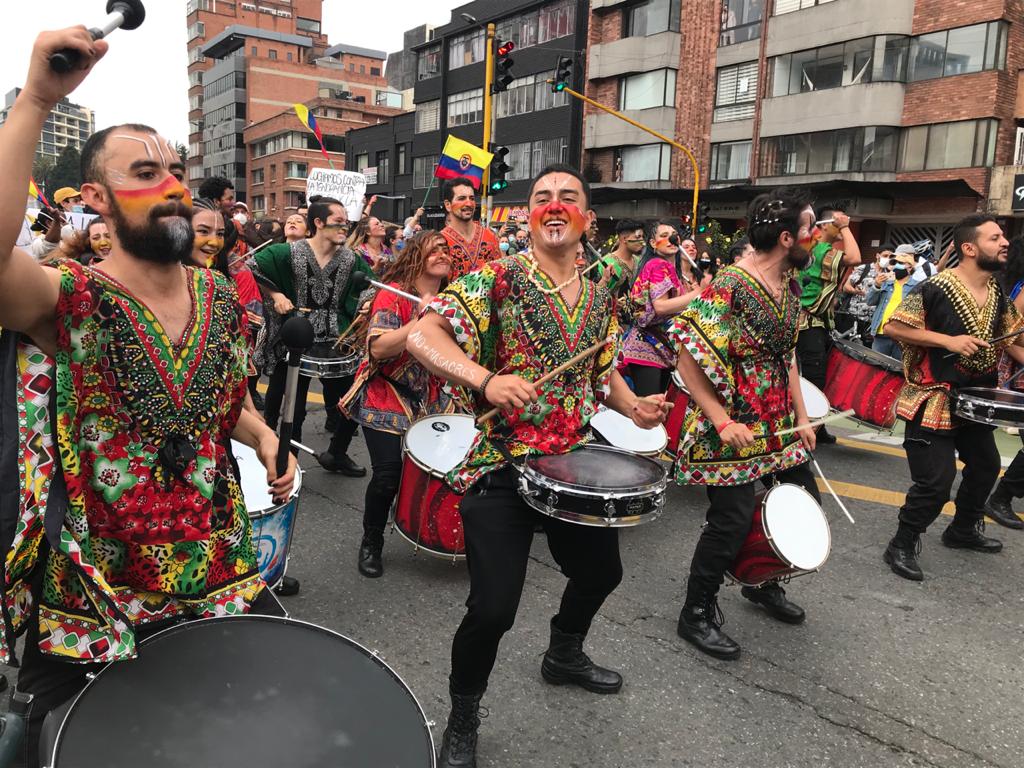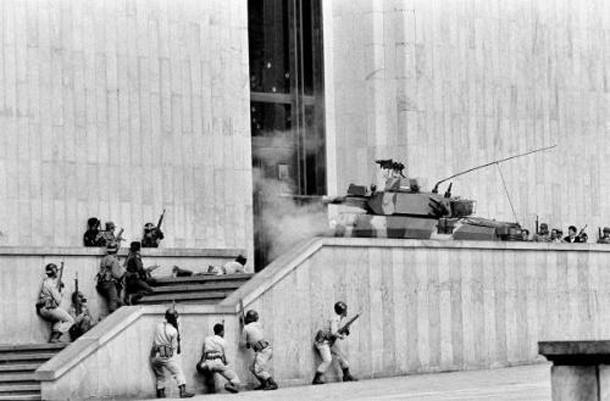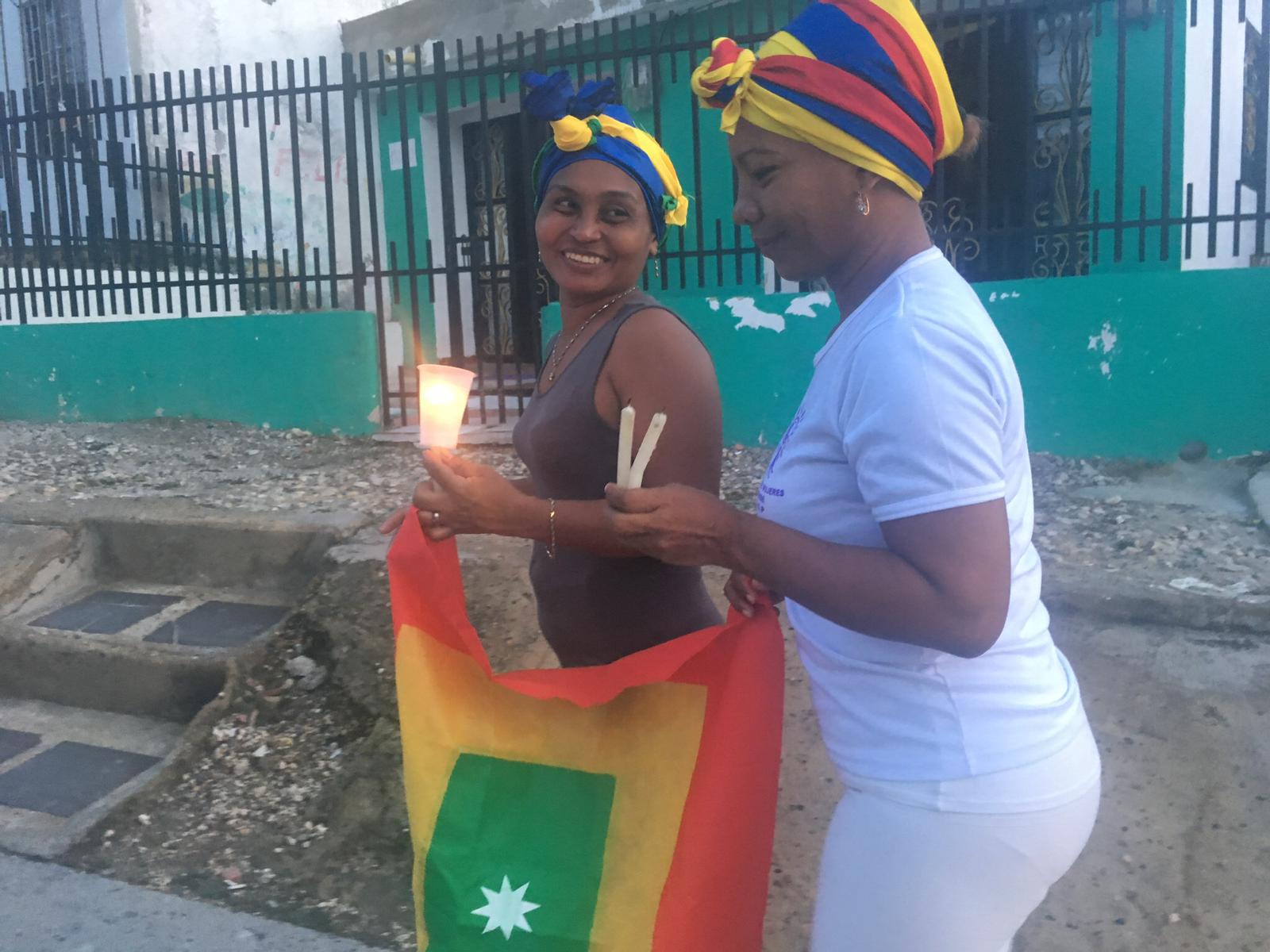Uniting Colombia’s divided parts through fabrics, fashion, and ancestral craftsmanship
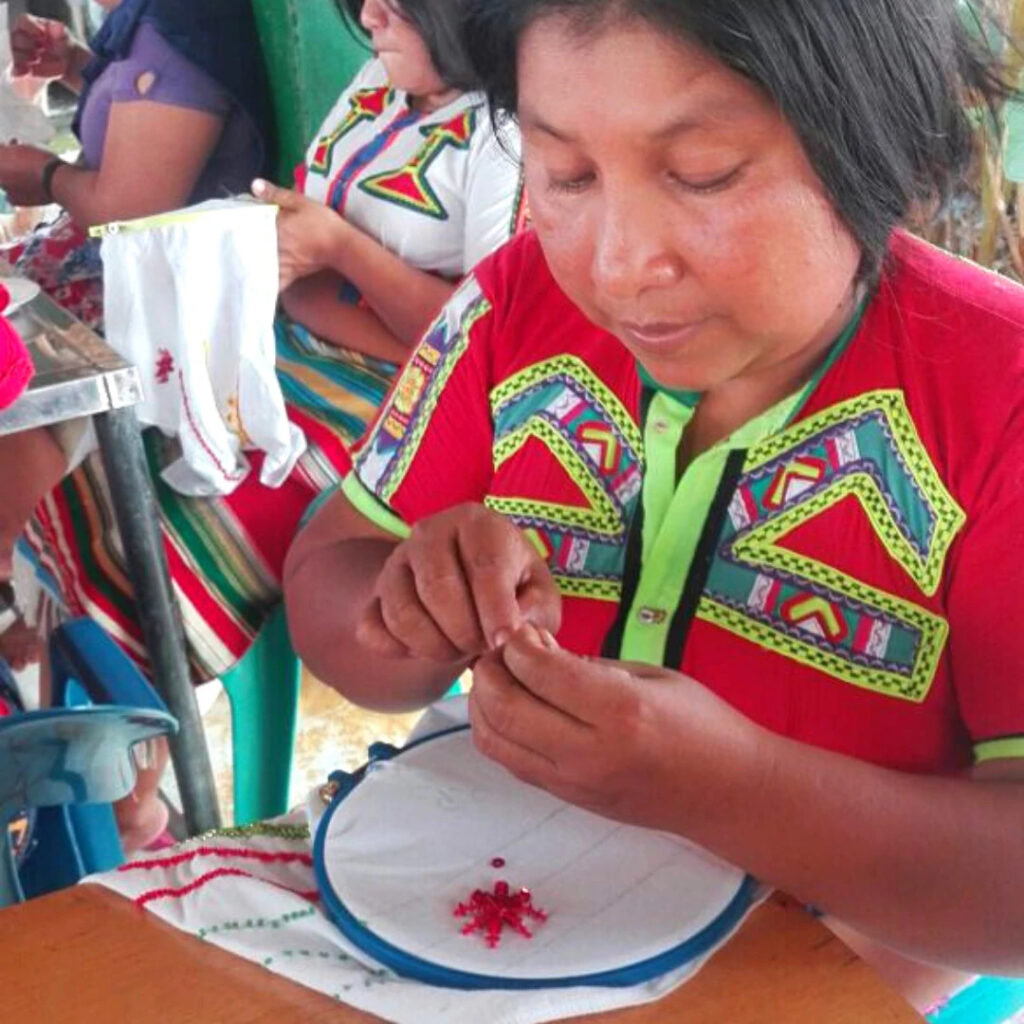
Maria Luisa Ortiz’s background is not politics – it’s high fashion. She originally studied haute couture with Christian Dior in Paris. Now she’s using that knowledge to help re-thread connections in communities badly damaged by Colombia’s conflict. “Once you’re sitting at the sewing machine – that’s when you have everything in common. It’s the same worldwide,” says Maria Luisa.
A moment of political awakening in her native Colombia, led her to return and build something that’s become a lifeline for former combatants as well as survivors of the conflict. The collaborative project weaves together peace, history, and ecology – repurposing used uniforms with artisanal embroidery to create brand new pieces of clothing.
“Back when I started my career, I wasn’t so conscious of my country and what surrounded me – I was focussed on my oficio – my craft. It is still my passion,” Maria Luisa tells me. The small plaster on her finger feels out of place with her casual glamour and effortless elegance. But it’s crucial evidence she hasn’t strayed far from the needle and thread even after a decades-long career.
In 2013, three years before the peace deal was signed with the FARC, at an event to celebrate and preserve the country’s artisanal practices, she saw the potential of Colombia’s traditional crafts and artisanry – and how undervalued much of it was.
“My brain exploded,” she said. “I had the opportunity to travel to those communities and see that what – in Paris, where I had studied – was so valued and highly-paid for in Europe, was providing only situations of poverty for artisans here. To too many people they are just part of the landscape.”
Maria Luisa started to train survivors of conflict, displaced people, and former-combatants. The more she travelled, the more she was struck by the division in the country.
“We are from the same land, we are from the same past. It was hard to understand our division. But I saw there could be a unifying thread between us, all of us. So many families have a sewing machine at home, rural and urban families.”
“And we asked one another, ‘Who taught you to sew?’ It was a magic moment.” She continues, “The conflict disappeared… Something in common which doesn’t put you on one side or another – especially in this country. The spark stayed in my head. I had to do something.”
Read also: Colombian craft for dummies, a brief explanation
Then came a joint design project repurposing police uniforms. Hundreds of thousands of uniforms head to landfill every year in Colombia. And so the idea was born – uniting the power of sewing with the idea of upcycling old textiles: “The two problems united,” she says.
With state support, a workshop was set up in Tolima and a connection was made with a cooperative of the indigenous community of Embera Katío in Tierralta, Córdoba, a region of Colombia often caught in the crossfire between guerrillas and paramilitary groups. The workshop creates the clothes, and the cooperative in Córdoba produces traditional molas – symbolic beaded panels which decorate them.
Building cooperation with various parts of society
It’s now a patchwork team involving former FARC combatants, indigenous artisans, local entrepreneurs, civil society, and social enterprise. By building cooperation between these parts of society, the project aims to stitch together parts of Colombia that have been pulled apart by conflict.
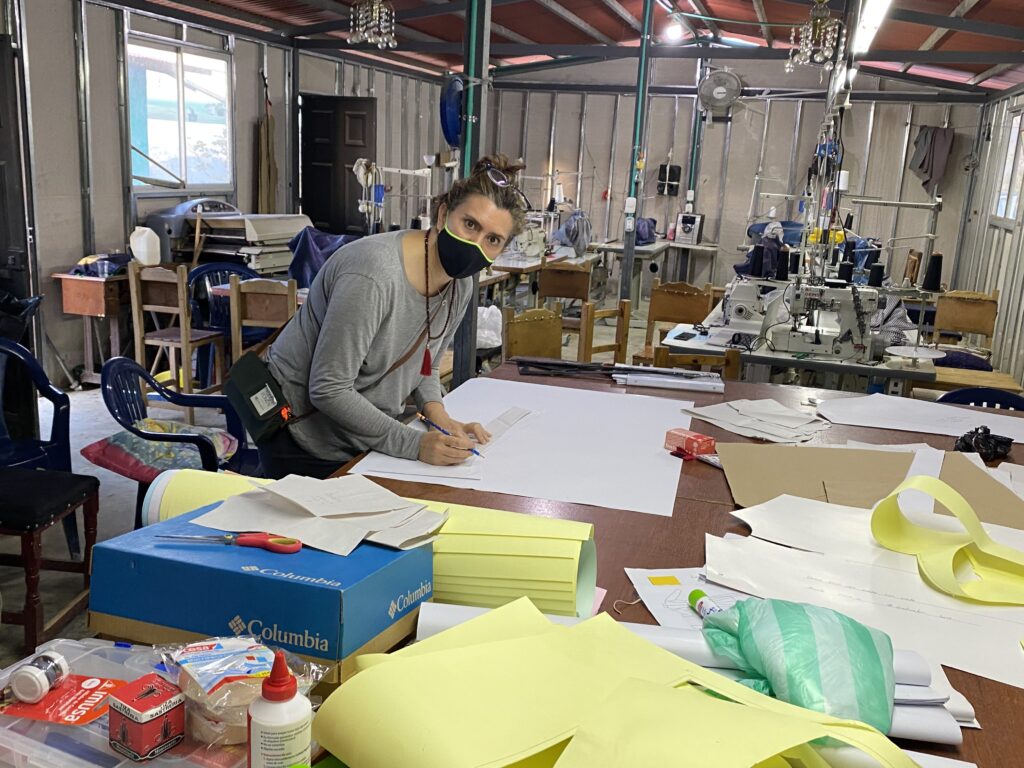
It’s been a complicated process and a lot of sacrifice, says Gonzalo Beltrán, a former FARC combatant who now works for the collective in the workshop in Tolima. But it now supports him and his family as well as the team in the workshop, who are also building strong links with the community.
“There’s still insecurity for us, but we have learnt to work hard to demonstrate to people who don’t believe in the peace process that it is possible, that we are still committed to this process despite everything,” he says. “Via these designs we can link people, transmit a message of unity, joy, resolution.”
The used uniforms and textiles are often even donated by companies who then buy the finished products. They are now being shipped all over the world by ISHKAR – a London-based company which specialises in preserving traditional craftsmanship, and providing market access to places which are often excluded from global trade. They also work with creators from Afghanistan.
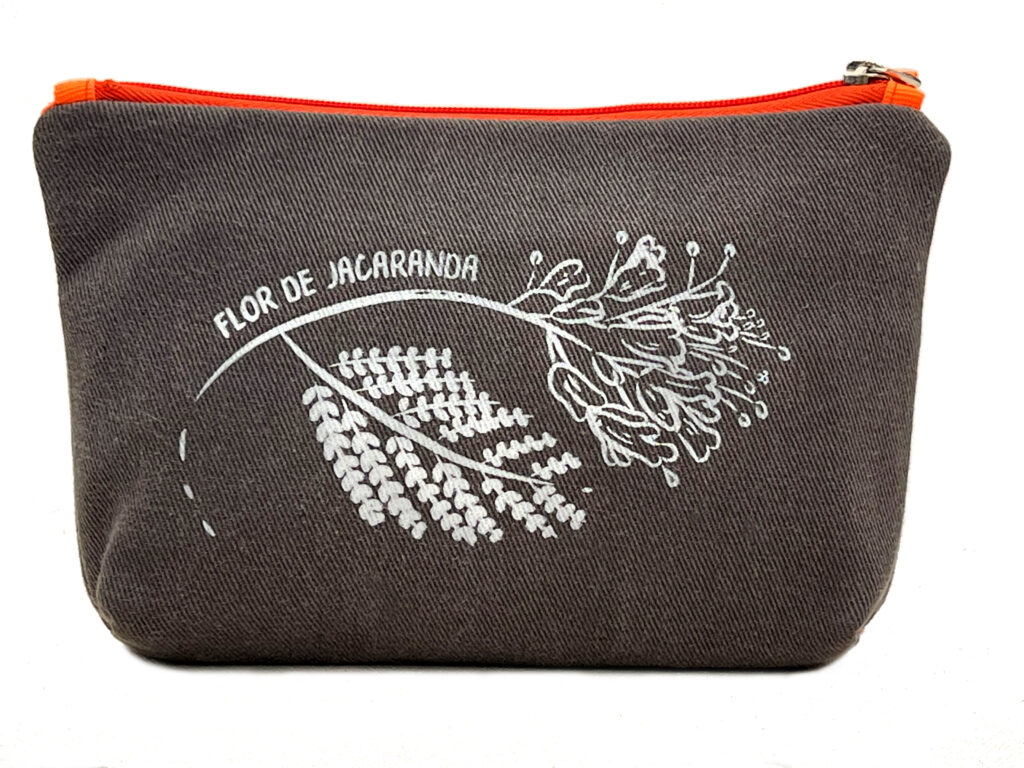
“We wanted not only to create something that could generate income for the artisans, but also a symbolic object that speaks of reconciliation. Working with both the ex-combatants and the indigenous community, the jackets and bags represent cooperation, stitching together parts of Colombia that have been pulled apart by conflict.” says Nadia, ISHKAR’s Head of Production.
Gonzalo says he’s hopeful about the project and its potential not just to support reintegration after the conflict, but to keep faith in the peace process, uniting former opponents and rebuilding communities.
“The future of Colombia is pretty complicated,” he said. “But we want to demonstrate to society that we can build a better country, and leave a better future to the new generation.”
Emily Hart is an independent journalist based in Colombia. She’s written for The Times, TheTelegraph, Pitchfork, Dazed etc. She runs a weekly news digest: Colombia’s top news stories in English – curated, digested, and delivered straight to your phone every Monday as a 5-minute audio and text. Sign up here for $5 per month!

